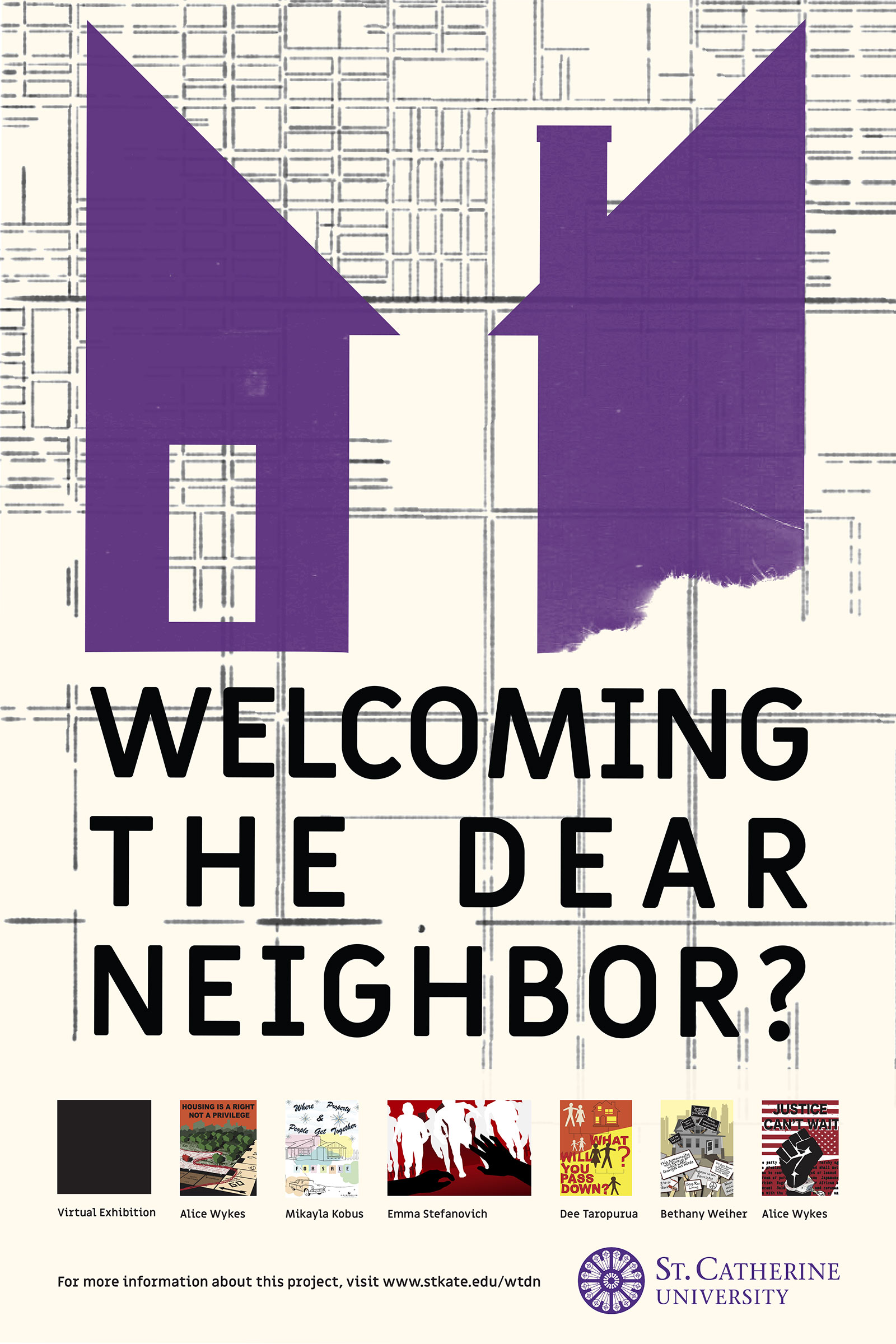Welcoming the Dear Neighbor? Exhibit
in collaboration with History Theatre, Welcoming the Dear Neighbor?, Saint Catherine University Art and Technology students
Why "Welcoming the Dear Neighbor?" The phrase "dear neighbor" comes from the Sisters of St. Joseph, founders of St. Kate's, who claim "the love of neighbor without distinction" as part of their unique mission. This also emphasizes their commitment to working with and for their "dear neighbors" marginalized by systemic oppression. Turning the phrase into a question forces us to consider two basic questions: has Ramsey County historically been a place that welcomed the dear neighbor regardless of race? And what are the legacies of this history today?
In the spring of 2020, the Center for Community Work and Learning facilitated a community-engaged collaboration between History Theatre, Welcoming the Dear Neighbor?, and students in the Art and Technology course at Saint Catherine University. Students used the art and design skills they were learning in the course to examine the history of racial convenants and redlining in the Twin Cities. History Theatre's plays "Not in our Neighborhood!" and "Not for Sale" will provide a framework for thinking about the role of art and artmaking s a tool for social change. Rather than practices relegated to the past, students were asked to consider the lasting impact of racial convenants and redlining and their relevance to present day social issues. The work that was produced addressed racial violence, policing, and loss of generational wealth as some of the issues tied to discrimination in housing. At the time we had no idea what was ahead. The pandemic and the murder of George Floyd would reveal just how relevant these historical practices are to current social structures and lived experience. The effects are deep, long-lasting and intersectional.
The posters that you can view here were completed just before History Theatre suspended performances and the Saint Catherine's University closed for in-person learning. Unfortunately, due to the discruption there were many other students who took part in the project whose posters are not present. The conversation continued, just in a different form.
For more information about this project, please visit: www.stkate.edu/wtdn
